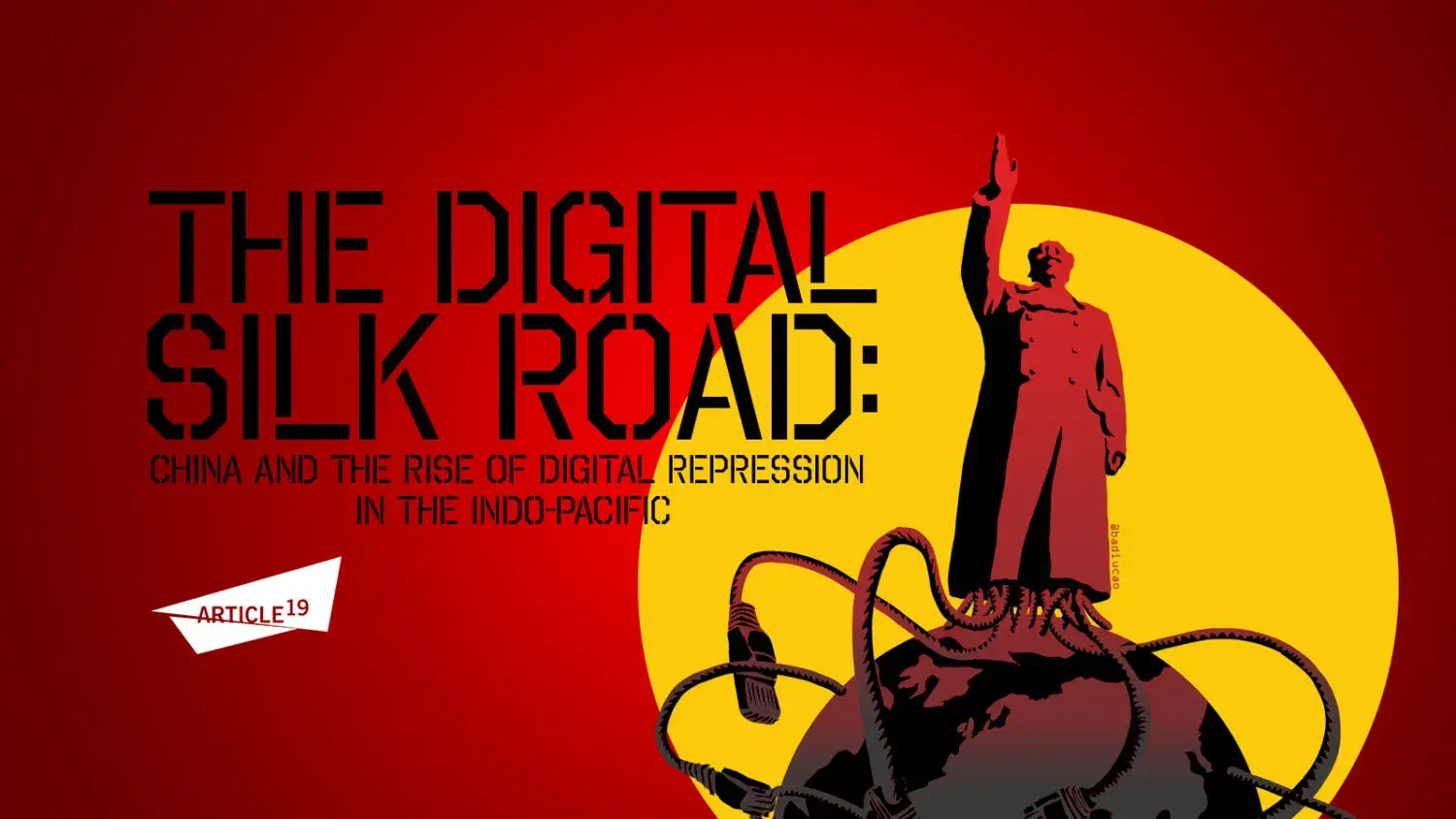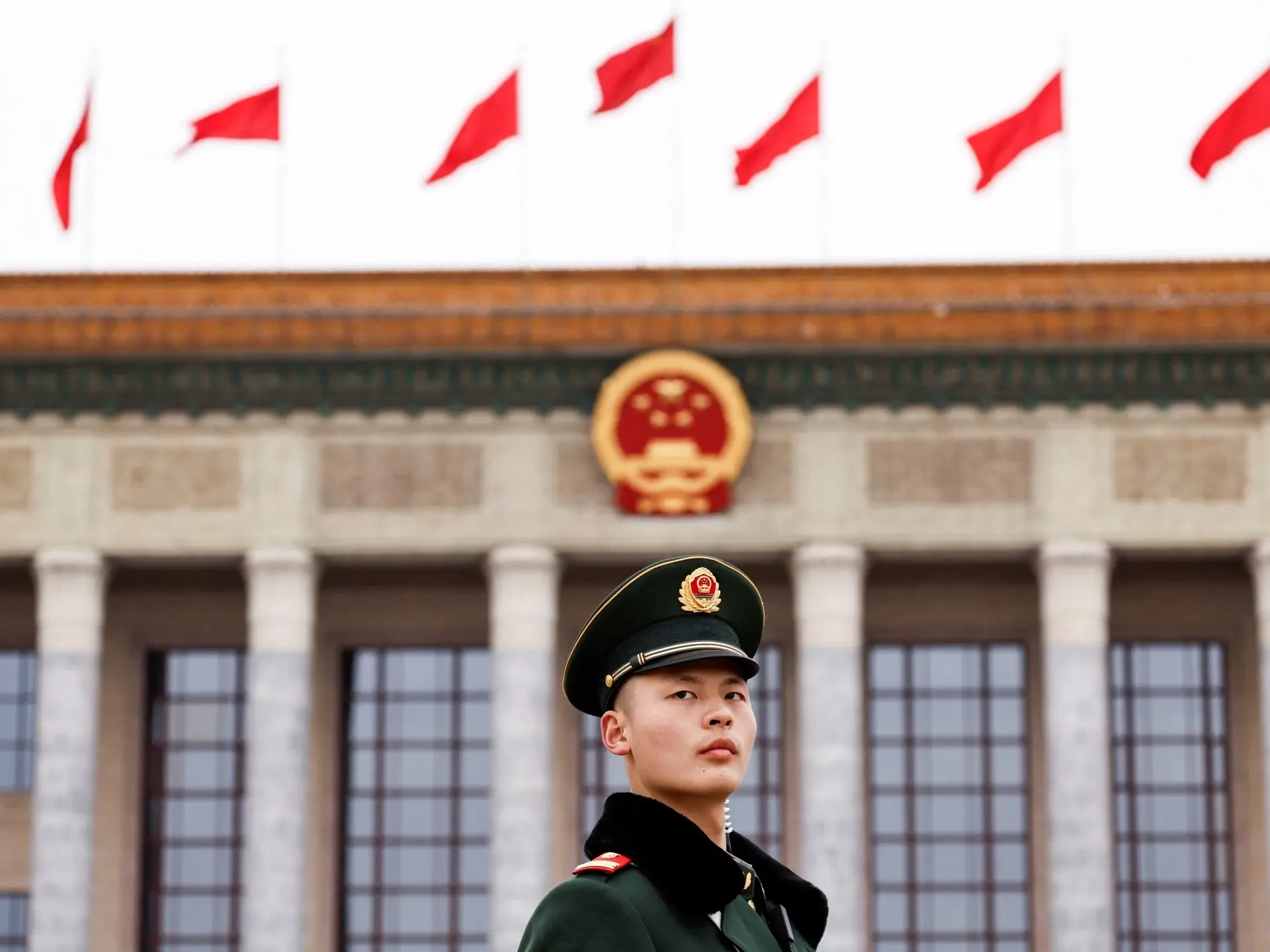- 158 Posts
- 20 Comments

 1·24 days ago
1·24 days agoI fully agree. One of my former colleagues once said that the only thing which is worse than the capitalism we have in the west is the early-stage capitalism in China.

 5·24 days ago
5·24 days agoMicrosoft faces bipartisan criticism in the U.S. for alleged censorship on Bing in China
Microsoft is the subject of growing criticism in the US over allegations that its Bing search engine censors results for users in China that relate to sensitive subjects the state wants blocked.
Republican Senator Marco Rubio has added his voice to criticism of the Redmond software giant for reportedly removing search results from Bing on human rights, democracy, climate change, and other sticky issues within China.
The move follows an earlier call from Democrat Senator Mark Warner for Microsoft to consider shutting off access to Bing in China for the same reasons after a report from Bloomberg claimed the platform was excluding information on certain topics to satisfy Beijing.
Rubio said there was “no defending” such actions, and that “every company doing business in China makes concessions to a genocidal, authoritarian regime.”

 3·25 days ago
3·25 days agoWell, maybe plus a portion of George Orwell.

 4·25 days ago
4·25 days ago@min_fapper@iusearchlinux.fyi @DdCnol@beehaw.org
The level of control by the Chinese Communist Party (CCP) wielded over the enterprises in China is extremley high, and this is true for state-owned enterprises (e.g., China National Petroleum, State Grid, Sinopec) as well as ‘private’ companies.
The combined assets of state-owned enterprises in China amount to +60 trillion USD, the equivalent of ~80% of the world’ GDP (according to Freeman Chair analyses). This is so as they are strictly shielded from any domestic or foreign competition as well as from any anti-trust regulations. Under Xi Jinping, the level of control has even grown. In 2017, the CCP even amended its constitution to assert that the Party “plays a leadership role” in firms’ decision making processes. All of these state-owned companies operate in strategic industries like banking, telecommunications, utilities, etc.
The increasing level of control and political influence by the CCP is also an issue for formally private companies, however. Private firms benefit from a similar economic system of high state subsidies that often focuse on scale rather than financial health, and -again- a shield from any competition in order to become major domestic and international players (the EV car industry is currently a prominent example, as well as its donestic property market).
When Western firms compete with Chinese firms, therefore, they essentially compete with the CCP rather than an individual rival. The CCP will do whatever it takes (regulation regarding competition, state subsidies) to ensure that foreign firms are outpaced.
As successful this may be for now, it backfires in the long-term. Some weaknesses are evident in the meantime, while others are likely to emerge in the not so distant future. The all-encompassing, centrally-planning state decision maker leads to shrinking company profitaibilty already and may lead to a decline in the rate of innovation in the future. China is already facing scrutiny in Europe and the U.S. over its structural overcapacity in many industries, its hegemonial intentions, and is increasingly struggling with its demographic development of an aging and shrinking population.
As researchers like Nicholas Lardy point out, if China wants to continue its economic success in the next decades, the country needs to open up, and become a more market-led economy. For now it seems it’s heading in the opposite direction.
[Edit typo.]

 0·1 month ago
0·1 month agoin the west capitalist systems there are 99% of the population into modern slavery.
It would be helpful if you posted a source for that claim. Where did you get that?
For China, I have one regarding North Korean workers in Chinese seafood processing.
The workers, all of whom are women, described conditions of confinement and violence at the plants. Workers are held in compounds, sometimes behind barbed wire, under the watch of security agents. Many work gruelling shifts and get at most one day off a month. Several described being beaten by the managers sent by North Korea to watch them. “It was like prison for me,” one woman said. “At first, I almost vomited at how bad it was, and, just when I got used to it, the supervisors would tell us to shut up, and curse if we talked.”
Many described enduring sexual assault at the hands of their managers. “They would say I’m fuckable and then suddenly grab my body and grope my breasts and put their dirty mouth on mine and be disgusting,” a woman who did product transport at a plant in the city of Dalian said. Another, who worked at Jinhui, said, “The worst and saddest moment was when I was forced to have sexual relations when we were brought to a party with alcohol.” The workers described being kept at the factories against their will, and being threatened with severe punishment if they tried to escape. A woman who was at a factory called Dalian Haiqing Food for more than four years said, “It’s often emphasized that, if you are caught running away, you will be killed without a trace.”
You’d find a lot more.

 0·2 months ago
0·2 months agoWhat has this to do with the topic?

 0·3 months ago
0·3 months agoThis is one reason why I haven’t been using Excel for years. I encourage everyone to use Python or R for analysing data.

 0·3 months ago
0·3 months agoGuess a human rights group in China is not possible for a lack of democracy. That aside, it doesn’t matter where the group sits, the issue is clear here. But, wait, …

 0·3 months ago
0·3 months agoData Leak at Anthropic Due to Contractor Error
TL;DR - Anthropic had a data leak due to a contractor’s mistake, but says no sensitive info was exposed. It wasn’t a system breach, and there’s no sign of malicious intent.

 0·4 months ago
0·4 months agoThe article doesn’t say which classifier algorithm they use in that case in India.
We had a similar incident in the Netherlands last year, for example, with similar problems. There they used Gradient Boosting afaik. But it doesn’t really matter as all these algorithms will yield a high number of false positives. If we use this and blindly trust trust the result in sensitive areas such as social welfare, we cause a lot if harm to iur society.

 0·4 months ago
0·4 months agoAddition: the CCP is actively hiring Chinese people all over the world to control and dissent as Safeguard Defenders says in a report
The consolidation of overseas United Front networks as the providers of services such as consular community assistance may not only give them potential broad access to individuals’ private data, home addresses, and contact information but may also dangerously enhance their function of control over overseas communities and dissenters.

 0·4 months ago
0·4 months agoA friend of mine is from Romania, and I know many who lived in the former GDR (German Democratic Republic). They don’t talk often about it, but when they do their stories seem absurd, hard to believe sometimes that these things happened, and each of these stories is a reason to avoid mass surveillance imo.

 0·4 months ago
0·4 months agoThe short answer: I don’t know. There is no research investigating the impact of a decreasing Chinese GDP on the country’s environmental impact (to the best of my knowledge).
The longer answer: China is bound to reduce its environmental impact anyway. The country has a very densely-populated urban area with low-lying coastal cities. Around 20% of the population lives there, producing around 33% of the country’s GDP. A rising sea level and other natural desasters (which is what practically all environmental experts inside and outside China expect even in tbe short term, meaning this year) will have a devastating impact on China’s social and political stability.
The good news is that China has the potential to get its arms around that imo, if, and only if the country opens up for further investments and international cooperation. Foreign direct investments (FDI) have been contributing significantly to China’s growth in the past (around 20% if I remember the number correctly), but FDIs also contributed indirectly by enhancing China’s technological and managerial capacities in the past. Data by China’s Ministry of Commerce shows that foreign enterprises represent just 2% of all companies, but 10% of the workforce (around 40 million jobs) contributing around 16% of China’s tax revenue and 20% of foreign trade (export and import combined).
China will need to maintain this collaboration even more in the future, as a shrinking population is barely apt to boost a domestic market. But international collaboration requires mutual respect of foreign laws, accepting fundamental human rights, and an open economy with a high degree of decentralisation and innovation. I’ll leave it to others to decide whether or not Chinese politics is heading in this direction.
Addition: all numbrrs are for the years 2021/2022.

 0·4 months ago
0·4 months agoThis is true for more or less all international and national agencies (World Bank, OECD, CIA, all EU agencies, …). Their reports are extremely good and accurate, but the problem is that politics doesn’t appear to be listening.

 0·4 months ago
0·4 months agoBeijing could have invested all this money for the Chinese people and its economy rather than for a disinformation campaign. It would be better for Taiwan, China, and the rest of the world.

 0·4 months ago
0·4 months ago[…] Hamas is a genocidal organisation […]
Who disputed the claim of Hamas being a genocidal organisation? They are. But this has nothing to do with the linked article and the fact that Israel is committing genocide on the Palestinian people as well.
Is this the international law in the 21st century? An eye for eye? (The answer is: no, it isn’t, because an eye for an eye makes the world go blind.)
I’m wondering whether you and others here will be tired of this whataboutism.

 0·4 months ago
0·4 months agoWe even used to be subscribers of the Economist for a long time, but they have made a complete u-turn over the years. In the meantime they appear to just echo mostly pro-establishment opinions with weak research and an often weird approach of interpreting data and issues. So this does not come as a surprise unfortunately.
South Africa levels accusations of ‘genocidal conduct’ against Israel at world court are different as we know.

 0·11 months ago
0·11 months agoYeah, when I read the headline I thought that ‘this time The Onion has gone too far’, but they actually do that.



















An example how the Chinese government is using espionage in its own country.
10 ‘spy’ cases China’s Ministry of State Security wants you to know about
Here is an alternative link to the video posted in the article: https://invidious.protokolla.fi/watch?v=z8qdFHT9t3k